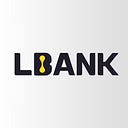Swing Trading or Day Trading? Which One Is Best?

Choosing between day trading and swing trading can be tough for crypto traders. Each has its own good and bad points, and what works for one person might not work for another. This article will look at the advantages and disadvantages of both types of trading. It’ll help you decide which one might be best for you based on your own situation.
What is Day Trading
Day trading is like a fast game in the crypto market. Instead of waiting a long time, day traders buy and sell crypto assets quickly, all in one day. They try to make money by guessing how prices will change in the short term. They watch charts and patterns closely to make their guesses. Success in day trading means being fast and knowing what’s going on in the market. Here are some key notes on what you need to know about day trading:
Advantages of Day Trading
1. Potential for Quick Profit: Day trading provides the opportunity to capitalize on short-term price movements, allowing traders to secure profits within a single trading day.
2. Risk Mitigation: Since day traders close their positions before the market closes, they avoid overnight risk associated with unforeseen events or news releases.
3. High Liquidity: Day trading is typically carried out during peak market hours, ensuring high liquidity and efficient trade execution.
4. Time Independence: Day traders have the flexibility to choose when to trade, providing a level of independence and freedom over their time.
Disadvantages of Day Trading
1. High Stress Level: The constant monitoring of trades, frequent decision-making, and rapid pace of day trading can lead to elevated stress levels.
2. Financial Risk: The temptation to engage in multiple trades can increase financial risk, especially if discipline and risk management practices are not followed.
3. Time-Intensive: Day trading demands a significant amount of time spent in front of screens, making it challenging to balance with other commitments.
4. Frequent Commissions: The high frequency of trades may result in frequent commission payments, impacting overall profitability.
What is Swing Trading
Swing trading means trying to make money by buying and selling crypto assets over a few days to a few weeks. Instead of focusing on quick moves like day trading, swing traders look at longer timeframes and big trends in the market. Here are some key aspects of swing trading:
Advantages of Swing Trading
1. Reduced Stress: Swing trading involves less frequent decision-making and monitoring, leading to lower stress levels compared to day trading.
2. Part-Time Opportunity: Swing trading allows for a more relaxed trading schedule, providing traders with the flexibility to pursue other activities or commitments.
3. Less Emotional Pressure: With fewer trades, swing traders experience less emotional pressure and can avoid becoming overly attached to individual positions.
4. Diversification: The relaxed pace of swing trading enables traders to diversify their trading activities, potentially managing multiple accounts or exploring other projects.
Disadvantages of Swing Trading
1. Lower Profit Potential: Due to the longer holding periods, swing traders may experience lower profit potential compared to day traders capturing short-term price movements.
2. Overnight Risk: Holding positions overnight exposes swing traders to overnight risk, as market conditions can change during periods of low liquidity.
3. High Cost of Swap Fees: Keeping positions open overnight may result in swap fees, impacting overall profitability, especially for traders using leveraged positions.
Key Differences: Time Frame and Risk Management
Day trading and swing trading differ primarily in their time frames and associated risks. Day trading involves executing trades within a single day, enabling quick decisions and reducing exposure to overnight risks. Day traders rely heavily on technical analysis and short-term indicators.
Swing trading, conversely, extends the holding period to more extended durations, requiring traders to hold positions for several days or weeks. This approach involves analyzing larger time frames to identify trends, support, and resistance levels.
Effective risk management is essential, particularly for swing traders holding positions overnight, as overnight market movements can significantly impact position values. As highlighted in Ricky’s video, waiting for confirmation is crucial in swing trading. Traders should ensure that a crypto demonstrates signs of progress and confirms a favorable direction before entering a swing trade.
Choosing Your Trading Style
Ultimately, the decision between day trading and swing trading depends on your personality, lifestyle, and trading preferences. Consider the following factors when choosing your trading style:
1. Personality: Are you comfortable with the fast-paced, high-stress environment of day trading, or do you prefer a more relaxed and patient approach in swing trading?
2. Time Commitment: Assess how much time you can dedicate to trading. Day trading requires more active involvement, while swing trading allows for a more flexible schedule.
3. Risk Tolerance: Evaluate your risk tolerance and financial goals. Day trading may offer quicker profits but comes with higher financial risk, while swing trading offers a more gradual approach.
4. Market Conditions: Consider the current market conditions and volatility. Some traders may find success in day trading during active market hours, while others may prefer swing trading in more stable conditions.
Wrapping Up
Choosing between day trading and swing trading isn’t the same for everyone. It depends on what you like, how you live, and how much risk you can handle. Think about how much time you have, how stress affects you, and if you want quick or long-term gains. Considering the good and bad of each way can help you decide what’s best for your money and how you trade.
Disclaimer: The opinions expressed in this blog are solely those of the writer and not of this platform.
